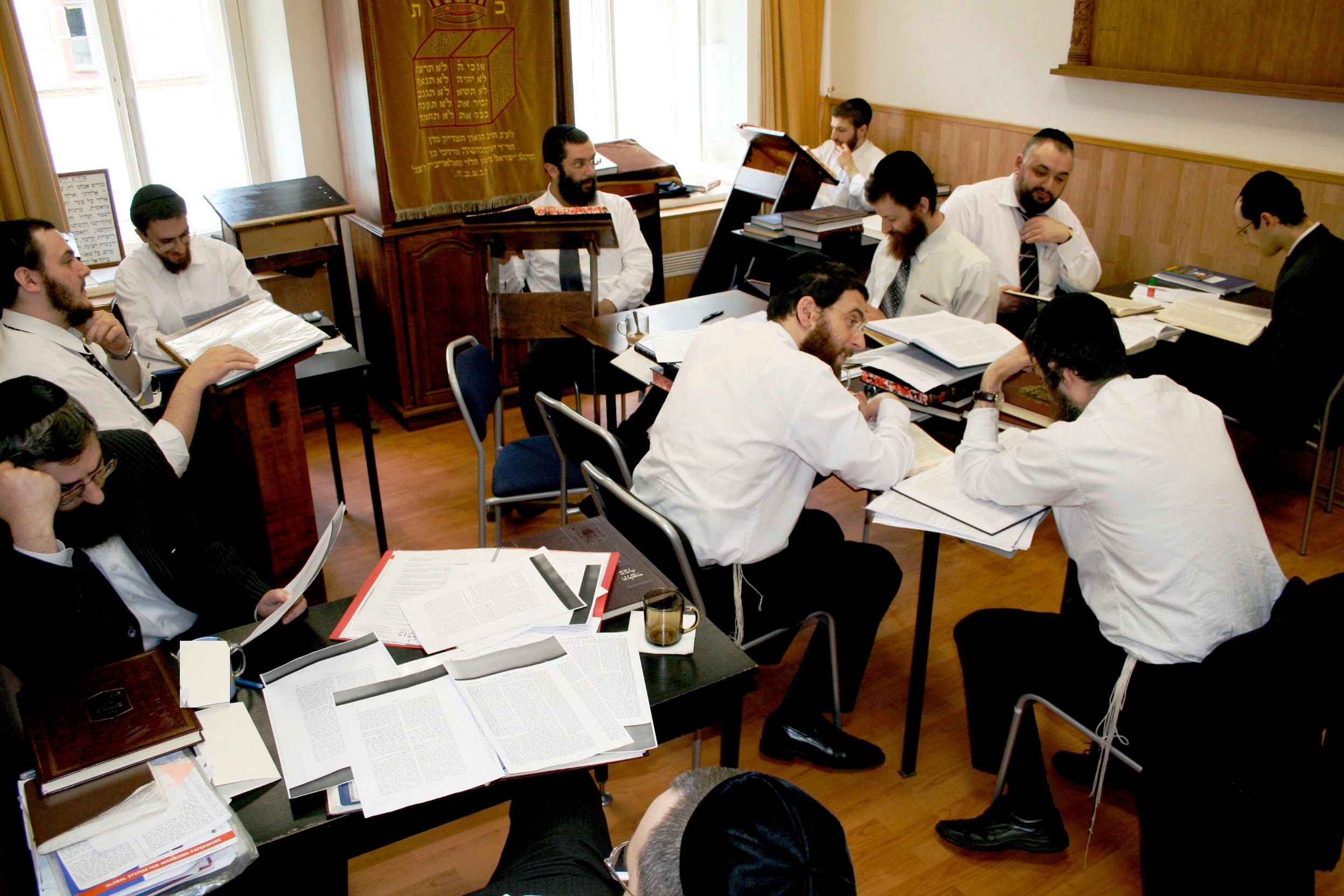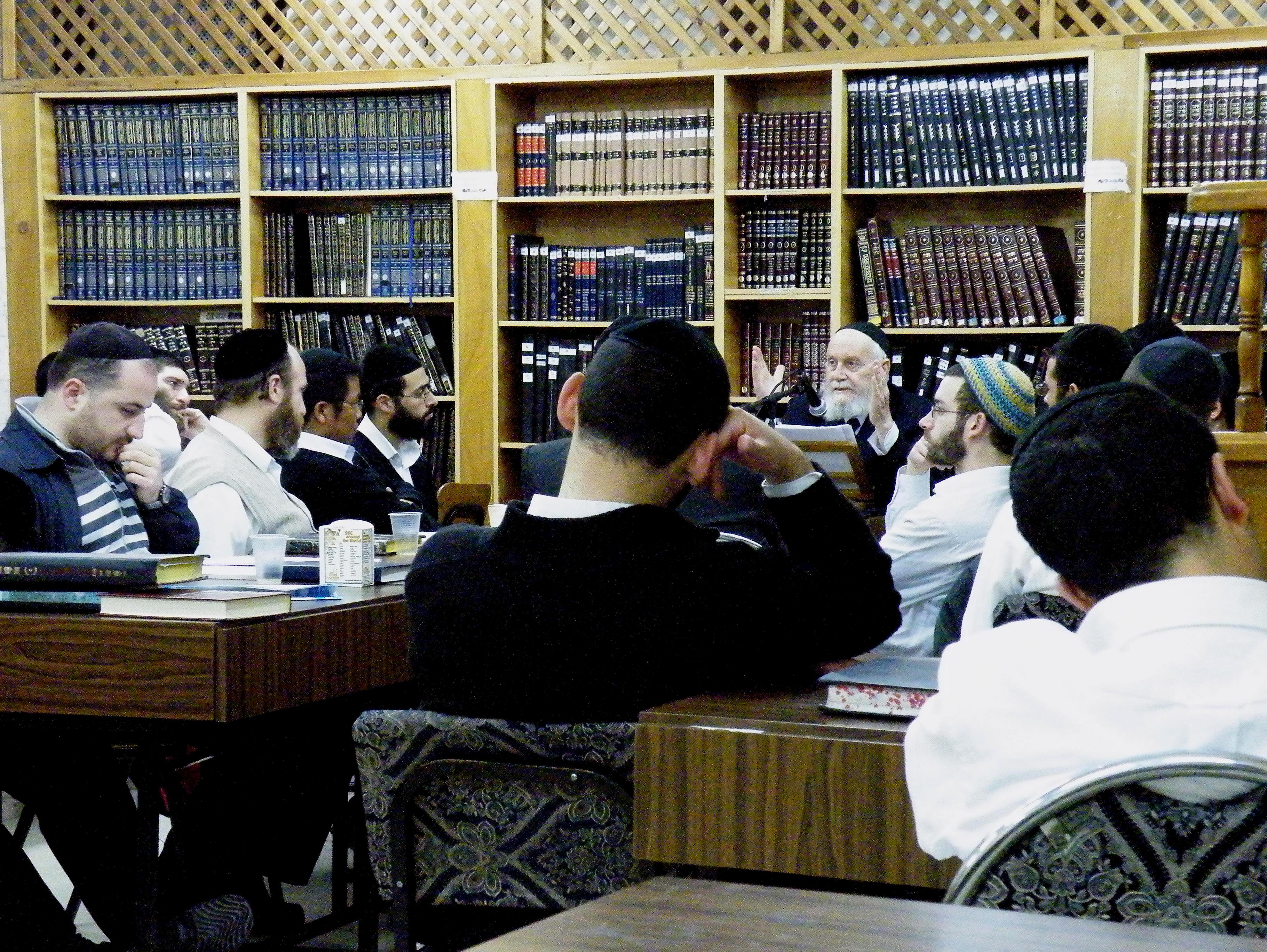|
Kollel Bet Mordechai
Kollel Bet Mordechai (The Beit Mordechai Campus Kollel) is a Kollel and Bet Midrash in Johannesburg, South Africa. It is associated with Mizrachi and is based at the Yeshiva College of South Africa. The Kollel facilitates advanced, as well as community Torah learning on a daily basi Advanced Yeshiva#Curriculum, yeshiva studies in its ''kollel'' include daily ''shiurim'' in Talmud with Rishonim, and in halacha. Several Kollel members have so far received Semicha; the examination by Rabbi Yaacov Warhaftig of Machon Ariel in Jerusalem. Community focused activities range from individualised chavruta-based study to public ''shiurim''. ''Daf yomi'' is offered three times daily, with a weekly "overview" for Women; ''Mishnah Berurah Yomit'' and ''Tzurba M’Rabanan'' are also offered. The Kollel is headed jointly by RabbNechemya Taylorand Rabbi Levy Winebergbr>(previously Rosh Yeshiva of the Rabbinical College of Pretoria); previously Rabbi Dr. Shlomo Glicksberg jointly ... [...More Info...] [...Related Items...] OR: [Wikipedia] [Google] [Baidu] |
Kollel
A kollel ( he, כולל, , , a "gathering" or "collection" f scholars is an institute for full-time, advanced study of the Talmud and rabbinic literature. Like a yeshiva, a kollel features shiurim (lectures) and learning ''sedarim'' (sessions); unlike most yeshivot, the student body of a kollel typically consists mostly of married men. A kollel generally pays a regular monthly stipend to its members. History Original sense Originally, the word was used in the sense of "community". Each group of European Jews settling in Israel established their own community with their own support system. Each community was referred to as the "kollel of " to identify the specific community of the Old Yishuv. The overwhelming majority of these Jews were scholars who left their homelands to devote themselves to study Torah and serve God for the rest of their lives. The kollel was the umbrella organization for all their needs. The first examples were Kolel Perushim (students of the Vilna Gao ... [...More Info...] [...Related Items...] OR: [Wikipedia] [Google] [Baidu] |
Shiur (Torah)
Shiur (, , lit. ''amount'', pl. shiurim ) is a lecture on any Torah topic, such as Gemara, Mishnah, Halakha (Jewish law), Tanakh (Bible), etc. History The Hebrew term שיעור ("designated amount") came to refer to a portion of Judaic text arranged for study on a particular occasion, such as a yartzeit, the dedication of a new home, or the evening of a holiday, and then to a public reading and explanation of the same. The act of teaching and studying these texts at the designated time was known in Yiddish as ''schiur lernen''. These shiurim would be attended by all classes of people; it was traditional for learned attendees to engage the lecturer in continuous discussion, and for the larger lay audience to listen intently. Concurrently, the word came to refer to the daily study quotient for students of a yeshiva, and then to the lecture given thereon. Akiva Eger, for example,would not miss learning a single ''shiur'' with the yeshiva. His ''shiurim'' with them w ... [...More Info...] [...Related Items...] OR: [Wikipedia] [Google] [Baidu] |
Yeshiva Of Cape Town
The Yeshiva of Cape Town is a kollel and yeshiva established in 1994. Its full title is "The Rabbi Cyril and Ann Harris Yeshiva of Cape Town", named for the late Chief Rabbi. It is based in the ''Green and Sea Point Hebrew Congregation'', in the suburb of Sea Point, Cape Town. The Yeshiva's ideology is Religious Zionist / Centrist Orthodox. It was previously headed by Rabbi Sam Thurgood, Rabbi Eitan Bendavid, Rabbi Moshe Ordman, Rabbi Nachum Romm, Rabbi Yossi Slotnik and Rabbi Ori Einhorn, and originally by Rabbi Jonathan Glasand Moshe Kornblu It served as the blueprint for the :he:תורה מציון (ארגון) , ''Torah MiTzion'' global Kollel initiative, now operating in some 40 cities. The ''Bachurim'' (students) of the Yeshiva come from Israel for a period of 11 months, mainly from hesder yeshivot. The Yeshiva provides "a depth and breadth of Torah study for the entire Cape Town community It operates a ''chavruta'' programme (partnered study) at various synagogues in t ... [...More Info...] [...Related Items...] OR: [Wikipedia] [Google] [Baidu] |
Orthodox Yeshivas In South Africa
List of Orthodox ''yeshivot'' in South Africa: * Kollel Bet Mordechai * Kollel Yad Shaul * Lubavitch Yeshiva Gedolah of Johannesburg * Ohr Somayach, South Africa * Rabbinical College of Pretoria * Yeshiva of Cape Town * Yeshivah Gedolah of Johannesburg * Yeshiva Maharsha Beis Aharon * Yeshiva Pri Eitz Chaim Yeshiva Pri Eitz Chaim was a Chareidi (Litvishe) Yeshiva based in Johannesburg, South Africa. The Yeshiva was established in 2004 by Rabbi Adam Saffer together with Rosh Yeshiva Rabbi Rabbi Eichenstein and operated for three years, and was locat ... * Yeshivas Meshech Chochma See also * Jewish education in South Africa * List of Jewish communities in South Africa Judaism-related lists ... [...More Info...] [...Related Items...] OR: [Wikipedia] [Google] [Baidu] |
History Of The Jews In South Africa
The history of the Jews in South Africa began during the period of Portuguese exploration in the early modern era, though a permanent presence was not established until the beginning of Dutch colonisation in the region. During the period of British colonial rule in the 19th century, the Jewish South African community expanded greatly, in part thanks to encouragement from Britain. From 1880 to 1914, the Jewish population in South Africa grew from 4,000 to over 40,000. South African Jews have played an important role in promoting diplomatic and military relations between Israel and South Africa. South Africa's Jewish community has reportedly declined from a possible peak of 120,000 to now between 52,000 and 88,000. Many South African Jews have emigrated to countries in the English-speaking world, such as the United States, Canada, the United Kingdom and Australia, as well as some emigrating to Israel. History Portuguese exploration The first Jews involved in the history of ... [...More Info...] [...Related Items...] OR: [Wikipedia] [Google] [Baidu] |
History Of The Jews In South Africa
The history of the Jews in South Africa began during the period of Portuguese exploration in the early modern era, though a permanent presence was not established until the beginning of Dutch colonisation in the region. During the period of British colonial rule in the 19th century, the Jewish South African community expanded greatly, in part thanks to encouragement from Britain. From 1880 to 1914, the Jewish population in South Africa grew from 4,000 to over 40,000. South African Jews have played an important role in promoting diplomatic and military relations between Israel and South Africa. South Africa's Jewish community has reportedly declined from a possible peak of 120,000 to now between 52,000 and 88,000. Many South African Jews have emigrated to countries in the English-speaking world, such as the United States, Canada, the United Kingdom and Australia, as well as some emigrating to Israel. History Portuguese exploration The first Jews involved in the history of ... [...More Info...] [...Related Items...] OR: [Wikipedia] [Google] [Baidu] |
Simcha Krauss
Rabbi Simcha Krauss (June 29, 1937 – January 20, 2022) was a rabbi associated with the liberal end of Centrist Orthodoxy. He was known for his role in the Religious Zionists of America. After making aliyah in 2005, he was involved with Yeshivat Eretz HaTzvi in the Katamon neighbourhood of Jerusalem, returning to the US in 2014 to found the International Beit Din. He was part of a family of which he was the 13th of 14 generations of Rabbis. Life and career Simcha Krauss was born in Chernivtsi on June 29, 1937 to Abraham Krauss who was then city's chief rabbi and Pearl Ginzberg, a homemaker. He spent his early childhood in Sibiu. After moving with family to United States in 1948, he studied at Yeshivat Chaim Berlin in New York under Rabbi Yitzchak Hutner (where he received Semikhah Semikhah ( he, סמיכה) is the traditional Jewish name for rabbinic ordination. The original ''semikhah'' was the formal "transmission of authority" from Moses through the generations. This ... [...More Info...] [...Related Items...] OR: [Wikipedia] [Google] [Baidu] |
Rabbinical College Of Pretoria
The Rabbinical College of Pretoria (Hebrew Hebrew (; ; ) is a Northwest Semitic language of the Afroasiatic language family. Historically, it is one of the spoken languages of the Israelites and their longest-surviving descendants, the Jews and Samaritans. It was largely preserved ... ''Yeshiva LeRabbonus Pretoria'') is a Chabad Yeshiva in Pretoria, South Africa. It was established in 2001 under the inspiration of late Chief Rabbi Cyril Harris. The Yeshiva was originally Rosh Yeshiva, headed by Rabbi Levi Wineberg, also joint rosh kollel, Rosh Kollel of Kollel Bet Mordechai in Johannesburg, and internationally known for his annotated translation of the Tanya (Judaism), Tanya. It is now under Rabbis Chaim Finkelstein and Gidon Fox, with Rabbi Yosef Kesseleman as Mashpia; and sometimes known as ''Machon L'Hora'ah Pretoria''. Structure Since the Yeshiva focuses on ''semicha'' (ordination), all students have studied at other institutions for several years. After successf ... [...More Info...] [...Related Items...] OR: [Wikipedia] [Google] [Baidu] |
Rosh Yeshiva
Rosh yeshiva ( he, ראש ישיבה, pl. he, ראשי ישיבה, '; Anglicized pl. ''rosh yeshivas'') is the title given to the dean of a yeshiva, a Jewish educational institution that focuses on the study of traditional religious texts, primarily the Talmud and the Torah, and ''halakha'' (Jewish law). The general role of the rosh yeshiva is to oversee the Talmudic studies and practical matters. The rosh yeshiva will often give the highest '' shiur'' (class) and is also the one to decide whether to grant permission for students to undertake classes for rabbinical ordination, known as '' semicha''. The term is a compound of the Hebrew words ''rosh'' ("head") and ''yeshiva'' (a school of religious Jewish education). The rosh yeshiva is required to have a comprehensive knowledge of the Talmud and the ability to analyse and present new perspectives, called '' chidushim'' ( novellae) verbally and often in print. In some institutions, such as YU's Rabbi Isaac Elchanan Theological ... [...More Info...] [...Related Items...] OR: [Wikipedia] [Google] [Baidu] |
Levi Wineberg
Levi (; ) was, according to the Book of Genesis, the third of the six sons of Jacob and Leah (Jacob's third son), and the founder of the Israelite Tribe of Levi (the Levites, including the Kohanim) and the great-grandfather of Aaron, Moses and Miriam. Certain religious and political functions were reserved for the Levites. Origins The Torah suggests that the name ''Levi'' refers to Leah's hope for Jacob to ''join'' with her, implying a derivation from ''yillaweh'', meaning ''he will join'', but scholars suspect that it may simply mean ''priest'', either as a loan word from the Minaean ''lawi'u'', meaning ''priest'', or by referring to those people who were ''joined'' to the Ark of the Covenant. Another possibility is that the Levites originated as migrants and that the name Levites indicates their ''joining'' with either the Israelites in general or the earlier Israelite priesthood in particular. [...More Info...] [...Related Items...] OR: [Wikipedia] [Google] [Baidu] |
Rosh Kollel
A kollel ( he, כולל, , , a "gathering" or "collection" f scholars is an institute for full-time, advanced study of the Talmud and rabbinic literature. Like a yeshiva, a kollel features shiurim (lectures) and learning ''sedarim'' (sessions); unlike most yeshivot, the student body of a kollel typically consists mostly of married men. A kollel generally pays a regular monthly stipend to its members. History Original sense Originally, the word was used in the sense of "community". Each group of European Jews settling in Israel established their own community with their own support system. Each community was referred to as the "kollel of " to identify the specific community of the Old Yishuv. The overwhelming majority of these Jews were scholars who left their homelands to devote themselves to study Torah and serve God for the rest of their lives. The kollel was the umbrella organization for all their needs. The first examples were Kolel Perushim (students of the Vilna Gaon ... [...More Info...] [...Related Items...] OR: [Wikipedia] [Google] [Baidu] |




